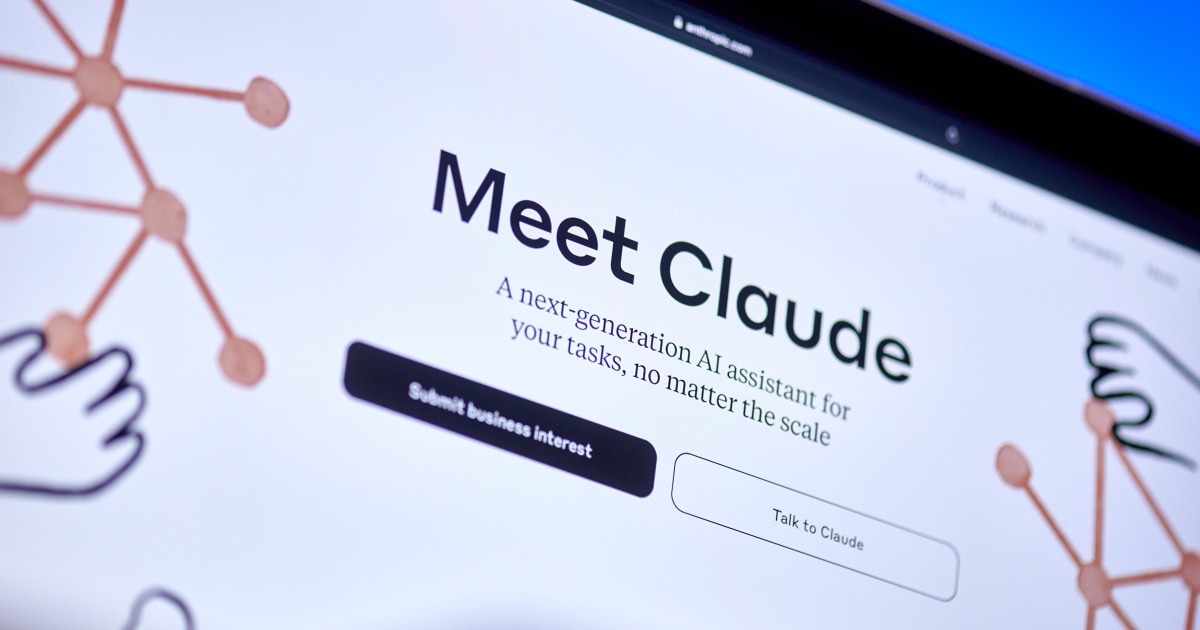Anthropic’s Bold Endorsement: A Shift in AI Regulation
On a notable Monday, Anthropic, an influential player in the artificial intelligence (AI) arena, made headlines by becoming the first major tech company to endorse a crucial piece of legislation known as SB 53. Proposed by California State Senator Scott Wiener, this bill aims to establish comprehensive regulatory guidelines for advanced AI models in California, marking a significant milestone for AI governance in the United States.
What is SB 53?
SB 53 is groundbreaking in its intent; if passed, it would become the first broad legal framework in the nation for large AI developers. The bill stipulates several key requirements aimed at enhancing safety and transparency in AI development. Central to its mission is the demand for large AI companies operating in California to formulate, publicize, and adhere to safety-focused operational guidelines. This initiative underscores the imperative of risk mitigation, especially in a landscape where AI technologies can have far-reaching consequences.
Key Provisions of the Bill
Among the standout features of SB 53 is its emphasis on whistleblower protections. The bill proposes stronger channels for employees to report serious risks or potential harm that might otherwise remain unaddressed. In its statement, Anthropic highlighted the importance of transparency, stating, “With SB 53, developers can compete while ensuring they remain transparent about AI capabilities that pose risks to public safety.”
Additionally, the bill aims to build on existing voluntary commitments made by leading AI companies like Anthropic, OpenAI, and Google. These commitments focus on assessing potential misuse of AI technologies and laying down mitigative strategies. SB 53 seeks to transition these voluntary measures into mandatory requirements, mandating that companies disclose their risk approaches on their websites and report any catastrophic risk assessments to state officials.
Targeting Major AI Developers
The legislation specifically targets AI companies specializing in high-performance models, defining “advanced” AI as those that require significant computing power. Notably, the strictest regulations would apply solely to companies with yearly revenues over $500 million, thus ensuring that the regulations hit the industry’s largest players who wield more substantial influence and capacity for risk.
Enhancing Public Safety Measures
In an effort to protect public safety, SB 53 plans to establish an emergency reporting system. This new avenue would allow both AI developers and the general public to report critical safety incidents related to AI models swiftly. This proactive approach indicates a growing recognition of the potential dangers posed by advanced AI systems and the urgent need for mechanisms to address these risks responsibly.
Legislative Support and Industry Reaction
Senator Wiener expressed gratitude for Anthropic’s endorsement, viewing it as a positive indication of broadening industry willingness to engage with AI safety regulations. Indeed, the bill has garnered substantial legislative support, having navigated both the Assembly and Senate with relative ease, with a final vote anticipated soon.
However, not everyone in the tech sector is on board. Organizations like the Consumer Technology Association and the Chamber of Progress have criticized SB 53. They argue that such regulations could stifle California’s leadership in the global AI landscape, potentially steering investments and jobs toward regions with less stringent regulatory frameworks.
Learning from Past Legislative Efforts
SB 53 is an evolved response to a prior bill, SB 1047, which faced considerable backlash from AI developers and trade organizations. While SB 1047 aimed for robust liability measures—including mandatory annual audits and restrictions on high-risk AI releases—it was ultimately vetoed by Governor Gavin Newsom, who cited concerns over its potential to hinder innovation.
The transition from SB 1047 to SB 53 illustrates a more tempered approach, focusing on transparency rather than strict liabilities. Wiener noted, “We modeled the bill on the recommendations from a working group formed after SB 1047’s veto,” emphasizing the lessons learned over previous attempts.
The Broader Implications of SB 53
As a catalyst for change, SB 53 could significantly influence not just California but national and global standards on AI regulation. The bill reflects a growing consensus around the need for transparency among frontier AI developers. Experts like Helen Toner, interim director of the Center for Security and Emerging Technology at Georgetown University, have highlighted that the call for transparency resonates strongly across different stakeholders in the AI community.
California’s Unique Positioning in AI Development
Anthropic’s stance is particularly worth noting, as it is evident that the company recognizes the interplay between innovation and regulation. They stated, “While we believe that frontier AI safety is best addressed at the federal level instead of a patchwork of state regulations, powerful AI advancements won’t wait for consensus in Washington.”
Senator Wiener echoed this sentiment, asserting that while a unified federal approach would be ideal, the necessity for state action remains pressing in the absence of national legislation. "California is at the heart of AI innovation," he pointed out, highlighting the state’s pivotal role in shaping the future of AI governance.
The Call for Unified Regulations
The tension between state and federal AI regulation is palpable. Competing interests argue for a consistent overarching framework rather than a disparate collection of state laws. OpenAI, a leading competitor to Anthropic, publicly advocates for federal legislation as a means to provide clear guidelines for the industry.
Final Thoughts
As SB 53 makes its way through the legislative process, all eyes will be on California to see if it can effectively balance innovation with necessary safeguards. The state’s decision could signal a significant shift in how AI development is approached and regulated across the nation, setting a precedent for other states to follow.



